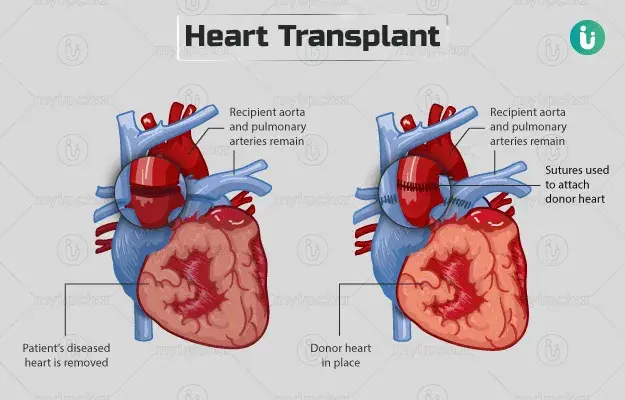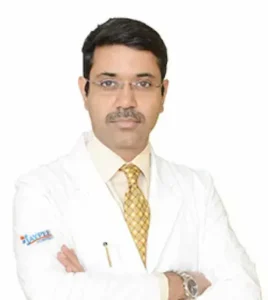In India, the cost of a heart transplant starts at approximately USD 50,000. The success rate for heart transplants in India is over 80%. Leading hospitals for heart transplants include Max Hospital, Apollo Hospital, and Fortis Hospital. Renowned specialists in this field are Dr. Bagirath Raghuraman, Dr. Ravi Shankar Shetty K, Dr. Z. S. Meharwal, and Dr. Naresh Trehan. Patients typically need to stay in India for about one month.
About Heart Transplantation
Heart transplants are typically performed for patients with congenital heart diseases when their condition does not improve with medications or other treatments. The procedure involves replacing a failing heart with a healthy donor heart. It is a major surgery requiring meticulous follow-up and care.
Pre-Transplant Assessment
Before the transplant, doctors evaluate the patient’s current heart condition to determine eligibility. If a transplant is deemed necessary, the patient is placed on a waiting list for a matching donor heart. Patients are expected to make lifestyle changes such as quitting smoking, avoiding alcohol, and maintaining a healthy weight.
Finding a Donor
While waiting for a donor heart, patients are monitored regularly. They might receive support from a mechanical device to assist with blood pumping. Donor hearts are matched based on size, blood type, and compatibility, and the transplant must occur within four hours of the donor heart’s removal.
During the Transplant
The surgery is performed under general anesthesia. The surgeon makes an incision in the chest to access the heart and replaces the diseased heart with the donor’s heart. Blood vessels are connected, and the heart may need an electric shock to start beating. A heart-lung machine maintains blood flow during the procedure.
Post-Transplant Care
After the transplant, patients spend several days in the ICU with IV tubes, a ventilator, and other monitoring equipment. Initial recovery takes about two to three weeks. For the first three months, patients need frequent follow-up visits to monitor for signs of organ rejection. Long-term medication, including immunosuppressants, is necessary to prevent rejection and maintain overall health. Patients are also advised to maintain a healthy lifestyle, including quitting smoking and alcohol.
Risks of Heart Transplant Surgery
Potential risks include:
Medication Side Effects: Post-surgery medications may affect other organs like the lungs and kidneys.
Cancer Risk: Immunosuppressants increase the risk of cancer.
Infection Risk: Medications may weaken the immune system, increasing susceptibility to infections.
Graft Failure: The donor heart may fail to function properly.
Rejection: The body may reject the donor heart, which is a serious risk.
Cost Variations Across Indian Cities
Delhi: AIIMS was the first hospital in India to perform a heart transplant, and the city now has advanced facilities for the procedure.
Mumbai: Mumbai has several successful heart transplant cases and offers multiple hospital options.
Kolkata: Kolkata provides various customized packages for medical tourists seeking heart transplants.
Bangalore: Bangalore boasts experienced specialists and world-class facilities for heart transplants.
Symptoms
Diagnosis
Treatment




